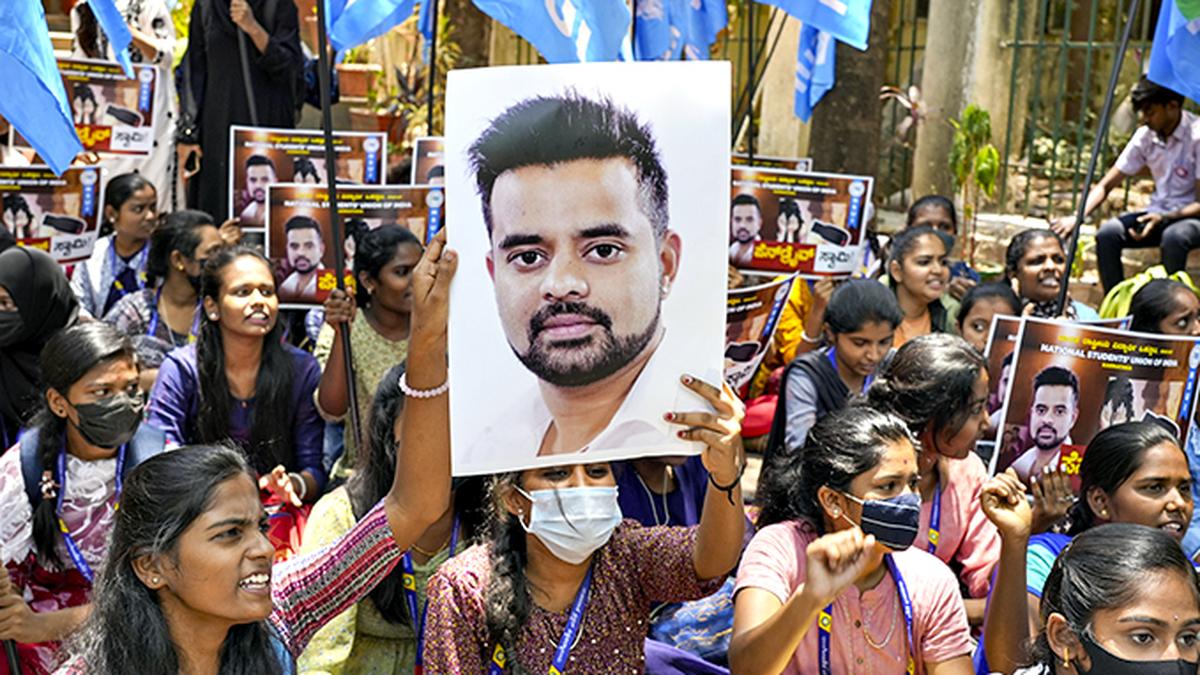
Prajwal Revanna sexual assault case | The complete coverage
The Hindu
All you need to know about the Prajwal Revanna sex scandal — the timeline of the case, emerging developments and detailed updates on the ongoing SIT probe
Close to 3,000 video clips, photos and documents of alleged sexual assault and abuse against women. The grandson of a former PM and nephew of a former CM. And a regional party striving to remain relevant in state politics.
Over the past week, a massive sex scandal has rocked Karnataka, overshadowing the political discourse in the ongoing Lok Sabha elections. In the thick of it all is Prajwal Revanna, grandson of former PM HD Deve Gowda, and sitting MP from Hassan. On April 27, the Karnataka government, at the behest of the State Commission for Women, constituted a Special Investigation Team (SIT) to probe into the alleged video clips of sexual abuse and exploitation involving the Hassan MP.
With pressure building on an embarrassed JD(S), the party suspended Mr. Prajwal on April 30. On May 1, the Hassan MP — who had fled to Germany on April 27 morning — was served a notice by the SIT to appear for questioning within 24 hours. He is said to have sought seven days’ time to do so, through his lawyers.
But trouble seems to be mounting for the Revanna father-son duo, with newer and uglier details emerging everyday. On May 3, Prajwal’s father and JD(S) leader H. D. Revanna was booked for kidnapping one of the alleged victims sexually assaulted by his son. The alleged victim had worked as a maid in the Revanna household for six years. A video of her being ‘raped’ by Prajwal is in circulation, police sources said.
On the same day, a 44-year-old political worker accused the Hassan MP of raping her in his official quarters in Hassan city in 2021. The complainant told the Criminal Investigation Department (CID) that Prajwal recorded the sexual act on his phone and was blackmailing her with the footage, forcing her to have sex with him multiple times between January 1, 2021, and April 25, 2024.

“Writing, in general, is a very solitary process,” says Yauvanika Chopra, Associate Director at The New India Foundation (NIF), which, earlier this year, announced the 12th edition of its NIF Book Fellowships for research and scholarship about Indian history after Independence. While authors, in general, are built for it, it can still get very lonely, says Chopra, pointing out that the fellowship’s community support is as valuable as the monetary benefits it offers. “There is a solid community of NIF fellows, trustees, language experts, jury members, all of whom are incredibly competent,” she says. “They really help make authors feel supported from manuscript to publication, so you never feel like you’re struggling through isolation.”

Several principals of government and private schools in Delhi on Tuesday said the Directorate of Education (DoE) circular from a day earlier, directing schools to conduct classes in ‘hybrid’ mode, had caused confusion regarding day-to-day operations as they did not know how many students would return to school from Wednesday and how would teachers instruct in two modes — online and in person — at once. The DoE circular on Monday had also stated that the option to “exercise online mode of education, wherever available, shall vest with the students and their guardians”. Several schoolteachers also expressed confusion regarding the DoE order. A government schoolteacher said he was unsure of how to cope with the resumption of physical classes, given that the order directing government offices to ensure that 50% of the employees work from home is still in place. On Monday, the Commission for Air Quality Management in the National Capital Region and Adjoining Areas (CAQM) had, on the orders of the Supreme Court, directed schools in Delhi-NCR to shift classes to the hybrid mode, following which the DoE had issued the circular. The court had urged the Centre’s pollution watchdog to consider restarting physical classes due to many students missing out on the mid-day meals and lacking the necessary means to attend classes online. The CAQM had, on November 20, asked schools in Delhi-NCR to shift to the online mode of teaching.









